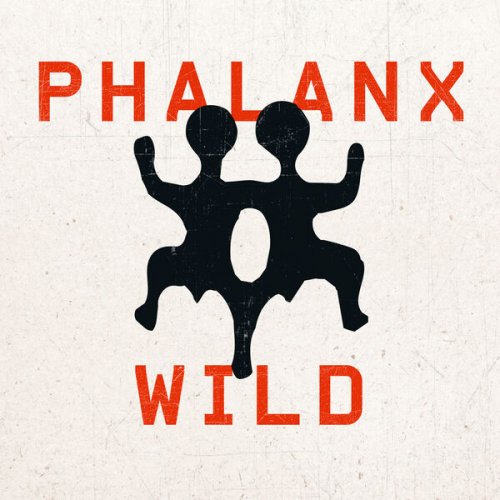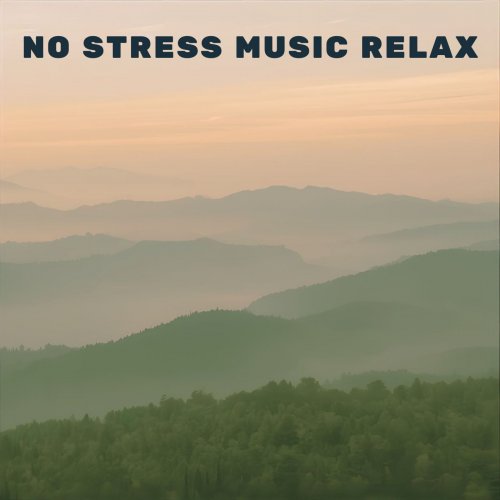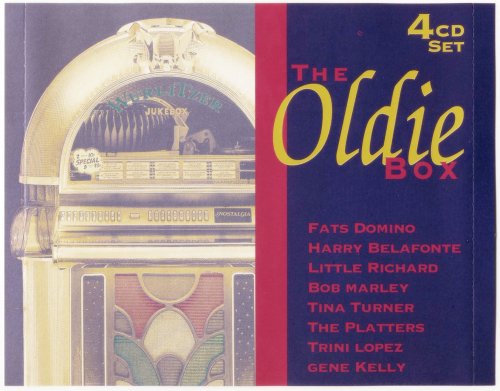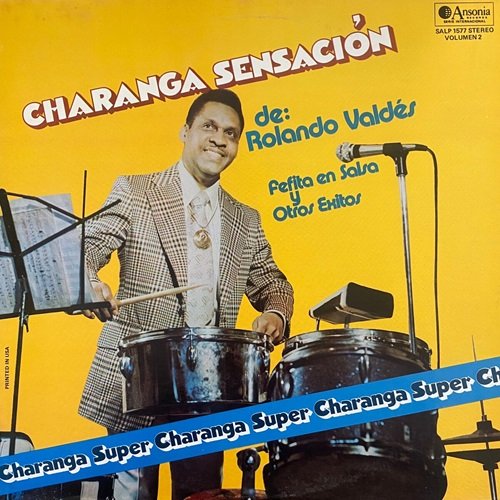Phalanx - WILD (2023) Hi Res

Artist: Phalanx
Title: WILD
Year Of Release: 2023
Label: BERTHOLD Records
Genre: Jazz
Quality: 320 kbps | FLAC (tracks) | 24Bit/96 kHz FLAC
Total Time: 00:56:33
Total Size: 133 mb | 311 mb | 1 gb
WebSite: Album Preview
Tracklist:Title: WILD
Year Of Release: 2023
Label: BERTHOLD Records
Genre: Jazz
Quality: 320 kbps | FLAC (tracks) | 24Bit/96 kHz FLAC
Total Time: 00:56:33
Total Size: 133 mb | 311 mb | 1 gb
WebSite: Album Preview
01. Phalanx - Mexiko 1
02. Phalanx - Mexiko 2
03. Phalanx - Mexiko 3
04. Phalanx - Mexiko 4
05. Phalanx - Notiz #1
06. Phalanx - Notiz #2
07. Phalanx - September
08. Phalanx - Vollgas
09. Phalanx - Wigory
10. Phalanx - Hansa 55
11. Phalanx - Jetzt merke ich es auch
12. Phalanx - Köln
The album's music is announced as an "amalgam of jazz and avant rock, elegiac piano melodies and a freely spinning guitar". So you can probably expect jazz, rock, noise and more when the four musicians from Phalanx play. The band name sounds like unity, but whoever hears the music will learn otherwise.
The musicians around band leader Mathieu Bech (piano) - Axel Zajac (guitar), Michael Haupt (bass) and Johannes Pfingsten (drums) - are the actors of Phalanx, a band that presents their debut album "Wild". About these musicians we read the following: “Axel Zajac plays guitar in the metal free jazz band Malstrom and has perfected the principle of noise infusion in this framework. The bassist Michael Haupt forms something of a counterpoint with the rather sunny tempered jazz trio Joern And The Michaels. And drummer Johannes Pfingsten is involved in countless projects, including with the drum'n'bass duo Wallfacer."
Already with the first bars one wonders whether a heavy metal or hard rock band is attempting jazz impressions. First of all, you have the listening impression of metal and hard rock, think of Rory Gallagher, Black Sabbath or Gary Moore and other musicians of hard rock sounds. But Phalanx isn't only on the move in hard rock waters. Fine sound sequences are also woven into the piano, you can hear the most delicately crafted string sounds. And so does "Köln," a track that features exploding sound sequences, including howling guitar passages on fast track. Is the noise of an urban jungle being heard, the sonic cloudburst in the hustle and bustle of the city? Yes and yes again. And in between the music also seems to drift in the direction of Uriah Heep and similar bands. It continues after "Cologne" has faded away. "Full throttle" is given and the focus is once again on guitarist Axel Zajac and pianist and bandleader Mathieu Bech. Sound stampedes are staged. In addition to the drummer's hard beats, you can hear the pianist's tornadoes, who hit the keys of his piano with great energy and in the truest sense of the word. The sounds of keys shoot over cliffs, as it were, breaks and falls can be discerned, images of cascading masses of water are evoked. Here and there you can also hear a softly drawn guitar. In the end, however, the sound inferno seems very close, doesn't it?
The beginning of “Hansa 55” is more reserved and lyrical. When listening, images emerge of a landscape flat as a baking tray over which torn clouds drift. Mathieu Bech's piano playing is almost sparkling. In between, one even thinks there are references to classical music. The bassist delivers profound things in an interspersed solo. You experience the bass beyond the usual phlegm, an almost "dancing bass". At the same time, the rocking that we experienced at the beginning of the album is completely forgotten. The piece is rather elegiac. The pianist celebrates leaps and bounds on the white and black keys. What we experience seems detached. The subsequent “hymn” on “Mexico” is in four parts. "Mexiko 1" thrives on a nervous rhythm, thanks to the drummer. But the other musicians also join in with the shortness of breath in the sounds. Drumming staccato is discernible, as well as rather long-wave keyboard play. And then yes, then you think you are immersing yourself in music by Mussorsky, moving between the flight of the bumblebee and the saber dance. Finally Wauhwauh and other howling strings reach our ears. Alvin Lee, Ten Years After or what? - that's what one or the other might think in view of the guitar tsunami. But Phalanx does not remain in one game mode, but shows itself to be rich in variety, changing from rock to elegiac piano sound, as also towards the end of "Mexiko 1". When listening intensively, the reviewers also got the impression that Keith Emerson was also present in spirit.
"Mexico 2" opens with a certain melodrama. Everything focuses on the pianist. A little noise is added to its playing without pushing the sound of the keys into the background. It continues with the third part of "Mexiko": The plucked strings are then unfolded, accompanied by piano "trills" and fast bass strings. What we hear seems restless. One has to think of outburst and departure as the piece progresses. Sound rotations become spin cycles in the sound mix. Finally everything flows into the fourth part of "Mexiko", initially with restrained piano playing in the solo. What is heard seems almost fragile. And the other band members don't thwart this impression with their contributions. Something songlike and a little baroque are present in the piece. With "September" the quartet rounds off the debut album, which focuses on the classic jazz instrumentation, sax.
The musicians around band leader Mathieu Bech (piano) - Axel Zajac (guitar), Michael Haupt (bass) and Johannes Pfingsten (drums) - are the actors of Phalanx, a band that presents their debut album "Wild". About these musicians we read the following: “Axel Zajac plays guitar in the metal free jazz band Malstrom and has perfected the principle of noise infusion in this framework. The bassist Michael Haupt forms something of a counterpoint with the rather sunny tempered jazz trio Joern And The Michaels. And drummer Johannes Pfingsten is involved in countless projects, including with the drum'n'bass duo Wallfacer."
Already with the first bars one wonders whether a heavy metal or hard rock band is attempting jazz impressions. First of all, you have the listening impression of metal and hard rock, think of Rory Gallagher, Black Sabbath or Gary Moore and other musicians of hard rock sounds. But Phalanx isn't only on the move in hard rock waters. Fine sound sequences are also woven into the piano, you can hear the most delicately crafted string sounds. And so does "Köln," a track that features exploding sound sequences, including howling guitar passages on fast track. Is the noise of an urban jungle being heard, the sonic cloudburst in the hustle and bustle of the city? Yes and yes again. And in between the music also seems to drift in the direction of Uriah Heep and similar bands. It continues after "Cologne" has faded away. "Full throttle" is given and the focus is once again on guitarist Axel Zajac and pianist and bandleader Mathieu Bech. Sound stampedes are staged. In addition to the drummer's hard beats, you can hear the pianist's tornadoes, who hit the keys of his piano with great energy and in the truest sense of the word. The sounds of keys shoot over cliffs, as it were, breaks and falls can be discerned, images of cascading masses of water are evoked. Here and there you can also hear a softly drawn guitar. In the end, however, the sound inferno seems very close, doesn't it?
The beginning of “Hansa 55” is more reserved and lyrical. When listening, images emerge of a landscape flat as a baking tray over which torn clouds drift. Mathieu Bech's piano playing is almost sparkling. In between, one even thinks there are references to classical music. The bassist delivers profound things in an interspersed solo. You experience the bass beyond the usual phlegm, an almost "dancing bass". At the same time, the rocking that we experienced at the beginning of the album is completely forgotten. The piece is rather elegiac. The pianist celebrates leaps and bounds on the white and black keys. What we experience seems detached. The subsequent “hymn” on “Mexico” is in four parts. "Mexiko 1" thrives on a nervous rhythm, thanks to the drummer. But the other musicians also join in with the shortness of breath in the sounds. Drumming staccato is discernible, as well as rather long-wave keyboard play. And then yes, then you think you are immersing yourself in music by Mussorsky, moving between the flight of the bumblebee and the saber dance. Finally Wauhwauh and other howling strings reach our ears. Alvin Lee, Ten Years After or what? - that's what one or the other might think in view of the guitar tsunami. But Phalanx does not remain in one game mode, but shows itself to be rich in variety, changing from rock to elegiac piano sound, as also towards the end of "Mexiko 1". When listening intensively, the reviewers also got the impression that Keith Emerson was also present in spirit.
"Mexico 2" opens with a certain melodrama. Everything focuses on the pianist. A little noise is added to its playing without pushing the sound of the keys into the background. It continues with the third part of "Mexiko": The plucked strings are then unfolded, accompanied by piano "trills" and fast bass strings. What we hear seems restless. One has to think of outburst and departure as the piece progresses. Sound rotations become spin cycles in the sound mix. Finally everything flows into the fourth part of "Mexiko", initially with restrained piano playing in the solo. What is heard seems almost fragile. And the other band members don't thwart this impression with their contributions. Something songlike and a little baroque are present in the piece. With "September" the quartet rounds off the debut album, which focuses on the classic jazz instrumentation, sax.
![Wes Montgomery - Full House (Remastered 2026 / Live At Tsubo / 1962) (1962) [Hi-Res] Wes Montgomery - Full House (Remastered 2026 / Live At Tsubo / 1962) (1962) [Hi-Res]](https://www.dibpic.com/uploads/posts/2026-02/1772124946_cover.jpg)



![Booker Stardrum - Close-up On The Outside (2026) [Hi-Res] Booker Stardrum - Close-up On The Outside (2026) [Hi-Res]](https://img.israbox.com/img/2026-02/26/hpg09p4i0w4yrzyjek6j087fv.jpg)

![Fabiano do Nascimento - Vila (2026) [Hi-Res] Fabiano do Nascimento - Vila (2026) [Hi-Res]](https://img.israbox.com/img/2026-02/26/o4t38f6qf24pvc3bqzanbhsz3.jpg)

